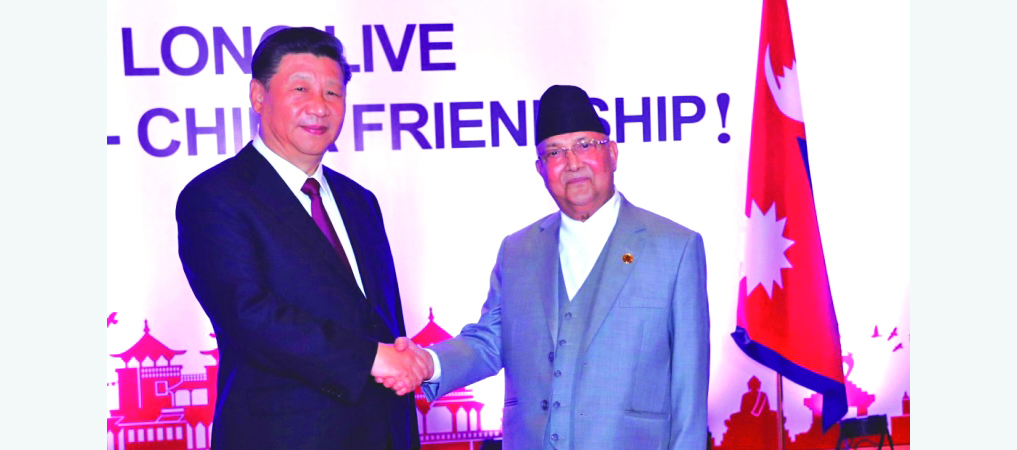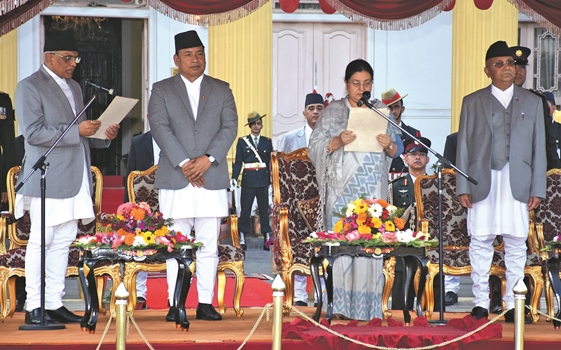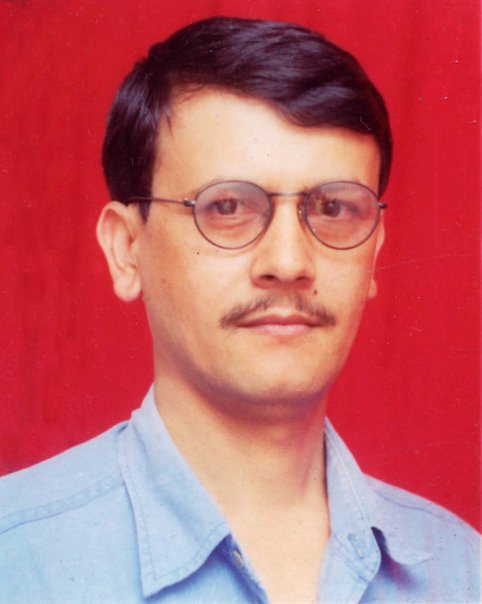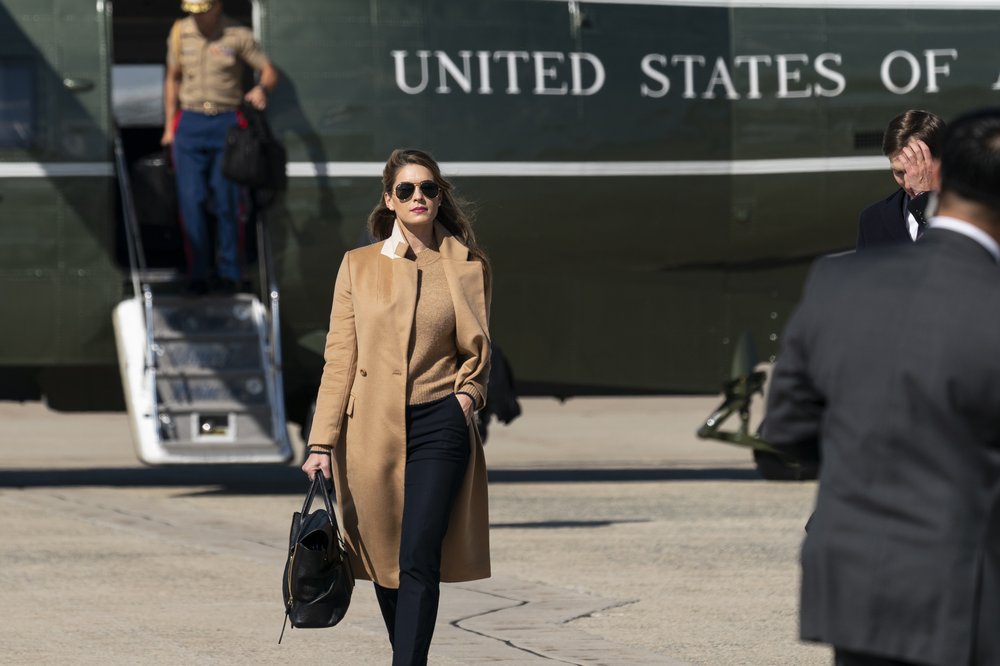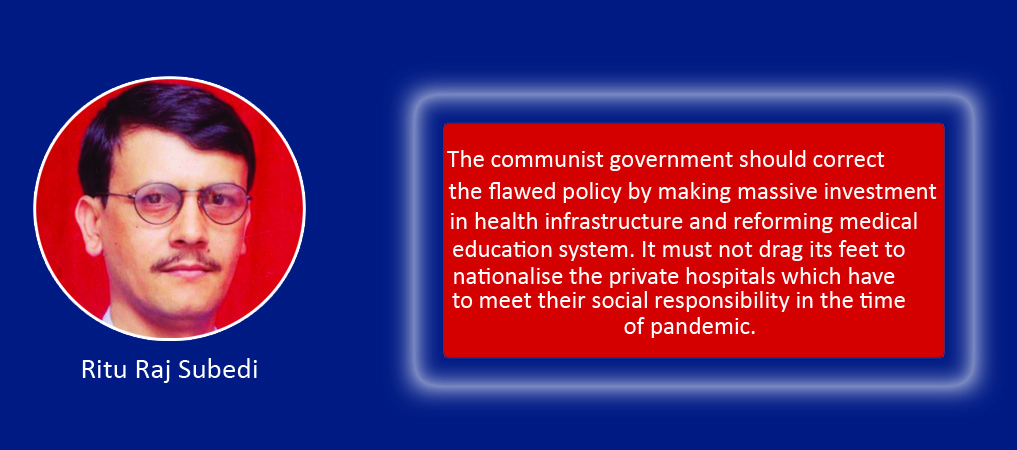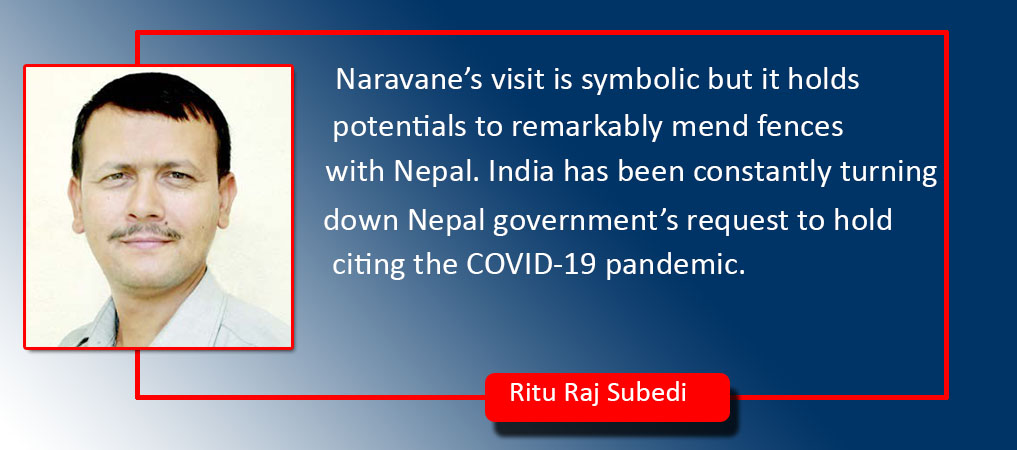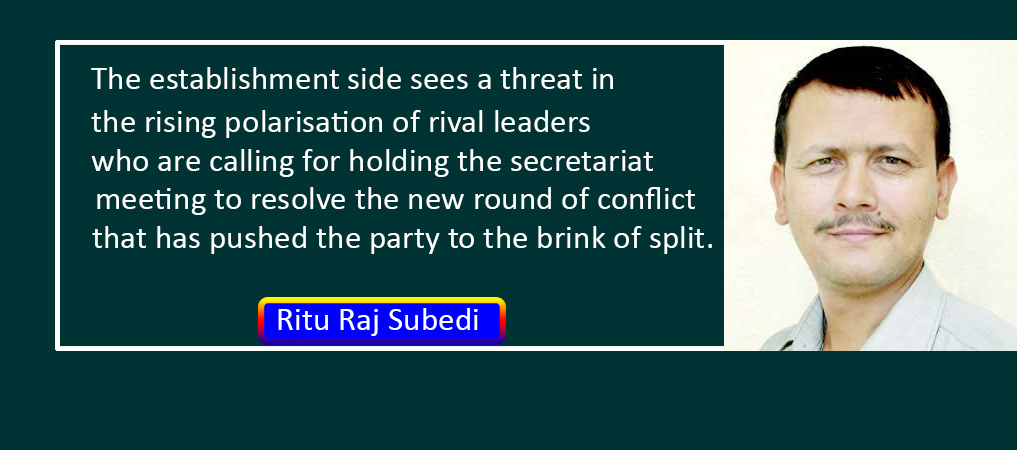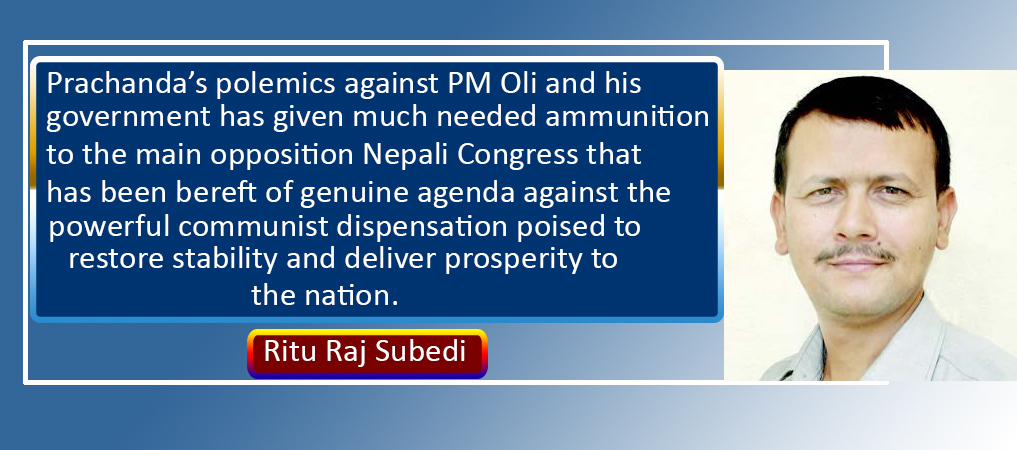Let Parliament Run Smoothly
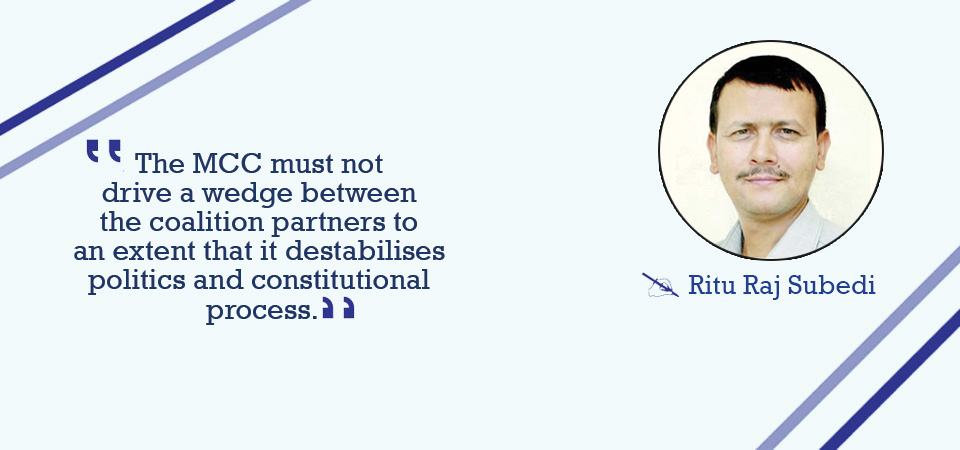
Ritu Raj Subedi
Nepal’s federal parliament has now turned into a ground of political battle. The main opposition CPN-UML continues to disrupt the House business to protest the Speaker’s refusal to dismiss 14 lawmakers, who disobeyed the party whip in the past and are now associated with CPN-Unified Socialist. But UML’s demand for action against its previous MPs lacks constitutional clarity. It took action against them several times and also decided to backtrack from it to create an atmosphere conducive to forging internal party unity. The party leadership blew a fuse when the coalition government introduced an ordinance to facilitate leader Madhav Kumar Nepal to split from UML and register a new party - CPN-Unified Socialist - at the Election Commission. To pre-empt Nepal’s move, the UML had decided to give rebel lawmakers the heave-ho.
Lawmakers’ antics
As all attempts to abort Nepal’s bid to create new political force came to naught, the UML decided to move the court and obstruct the House proceedings to show ire against the Speaker. On Friday too, the UML lawmakers picketed the well and tried to stop Finance Minister Janardan Sharma from presenting the budget replacement Bill in the House of Representatives (HoR). Two female UML MPs showed their antics targeting the Speaker and Minister Sharma. One attempted to climb on the shoulders of marshals to reach the rostrum while another went to the extent of snapping a mike to hurl it at the Speaker. It is understandable that the UML lawmakers have been driven by feelings of revenge, rage and frustration after their party was removed from power. However, such an unparliamentarily behaviour does not only debilitate the parliament’s sovereignty but also engenders disenchantment in public in regard to the viability of federal republican system.
The ongoing chaos in the House is the spillover effect of House dissolution and the vertical split in UML. The HoR dissolution had put the national politics on a slippery slope. It was with the bold court’s verdict that the democratic backsliding was effectively kept in check. When HoR was dissolved on a whim, it has brought crisis to the federal parliamentary polity, whose potency is yet to come into full play. The country has been a laboratory of trial of varied political isms and systems for over last seven decades but its experiments with them has been disastrous. It saw failure of one political system after another, plunging it into a cycle of chronic instability.
With the restoration of HoR, the political parties must rise to the occasion to make sure that federalism will not turn dysfunctional and collapse. This is the time for them to shed their partisan interest and make the highest elected body as the vibrant seat of democracy that is capable of guiding the executive in fixing the burning problems facing the nation. For this, they require demonstrating democratic vision, constitutional conduct and competence. If the parties – be they ruling or opposition - see the things from others’ perspectives, they are able to find common ground and avoid senseless confrontation and hostility. In the past, pandemonium and vandalism in the parliament had wasted valuable time and energy of lawmakers as well as the tax payers’ money. So the abominable activities in the parliament must end in favour of broad-based debates on and endorsement of vital Bills pending in the parliament for years.
Formed on the anti-regression platform, Sher Bahadur Deuba-led government is an outcome of special circumstances. Backed by five political parties, it is saddled with multitude of tasks. But they are still struggling to give full shape to the four-member Cabinet formed two months ago. The delay in the Cabinet expansion indicates political complexity that shows the ruling parties have to walk a fine line. Now they need to strike a balance within their respective parties as there are many aspiring for ministerial positions. However, if many aspirants emerge and jockey for Cabinet posts, this will give an impression that they are not fighting for the value-based politics and constitutionalism as highlighted by the Supreme Court ruling that deposed former prime minister KP Sharma Oli from the premiership for unconstitutionally disbanding the HoR.
Given the numerical strength of the ruling parties in the parliament, it is not a shaky coalition despite the fact that they represent divergent political thoughts. However, as observers surmise, the much-talked about $500 million Millennium Challenge Corporation (MCC) grant is likely to sow the seeds of conflict among them. They are apparently divided on its parliamentary ratification. PM Deuba and his party, Nepali Congress (NC), is determined to get it through the parliament but his allies – CPN-Maoist Centre, CPN-Unified Socialist, Janata Samajbadi Party (JSP) and Rastriya Janamorcha Nepal – are unwilling to accept the US aid in its current form. They have sought political consensus and amendment to MCC Compact Programme signed between the US and Nepal in 2017. Nonetheless, the MCC must not drive a wedge between the coalition partners to an extent that it destabilises politics and constitutional process.
In limbo
MCC vice president Fatema Z Sumar and deputy vice president Jonathan Brooks have urged the ruling and opposition leaders for the early endorsement of the US grant, citing that it has no ulterior motive other than helping Nepal for economic development. Prior to their landing in Kathmandu on Thursday, the MCC headquarters on Wednesday provided a lengthy clarification letter to the Ministry of Finance to allay concerns and allegations surrounding the MCC Nepal Compact. Since the MCC office has outright rejected the growing call to revise the provisions of the agreement, and clarification document can hardly acquire a legal status, the fate of US grant is hanging in limbo.
During her meeting with Maoist Centre’s chair Pushpa Kamal Dahal Prachanda, Sumar reportedly said that they were in Nepal not for putting any kind of pressure on the Nepali leadership for the ratification of the MCC programme but wanted to interact on it so that they would overcome confusion regarding it. Sumar’s views appear flexible and democratic. If she is open for candid discussions on the contentious points of the compact, what is the problem for the MCC office to revise the compact based on the response to 11 questions and supplementary concerns of the Ministry? By doing so, the US would win the respect of the Nepalis by way of showing regard to their sentiments and sovereignty of Nepal.
(Deputy Executive Editor of The Rising Nepal, Subedi writes regularly on politics, foreign affairs and other contemporary issues. subedirituraj@yahoo.com)
Recent News

Do not make expressions casting dout on election: EC
14 Apr, 2022
CM Bhatta says may New Year 2079 BS inspire positive thinking
14 Apr, 2022
Three new cases, 44 recoveries in 24 hours
14 Apr, 2022
689 climbers of 84 teams so far acquire permits for climbing various peaks this spring season
14 Apr, 2022
How the rising cost of living crisis is impacting Nepal
14 Apr, 2022
US military confirms an interstellar meteor collided with Earth
14 Apr, 2022
Valneva Covid vaccine approved for use in UK
14 Apr, 2022
Chair Prachanda highlights need of unity among Maoist, Communist forces
14 Apr, 2022
Ranbir Kapoor and Alia Bhatt: Bollywood toasts star couple on wedding
14 Apr, 2022
President Bhandari confers decorations (Photo Feature)
14 Apr, 2022



